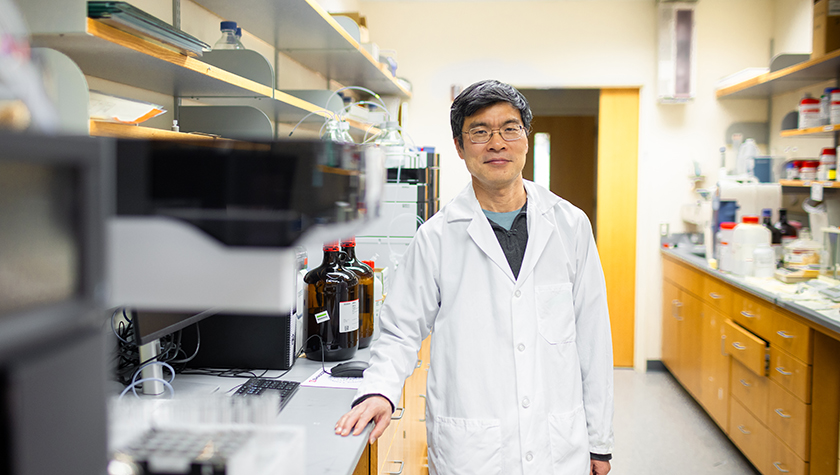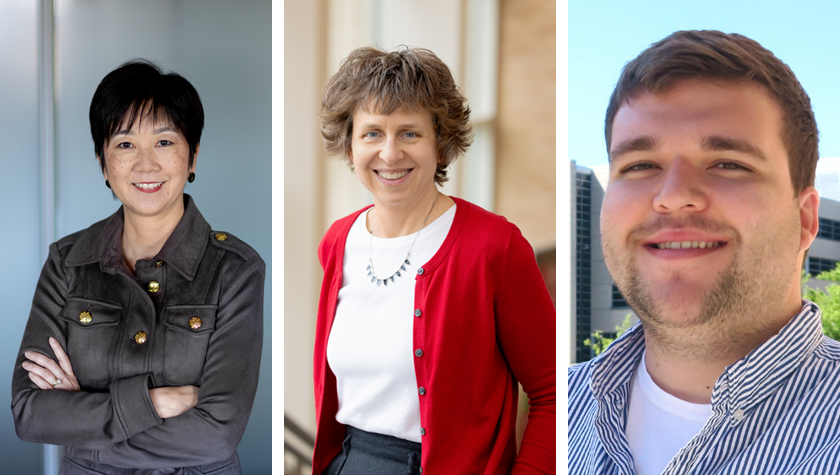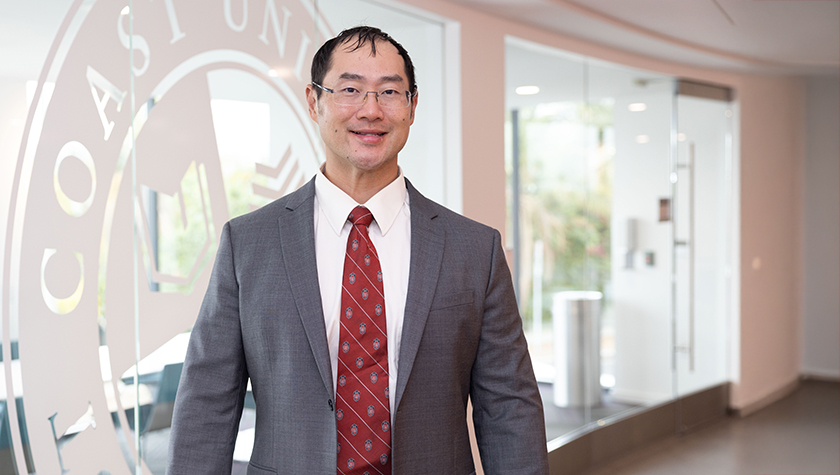
Alum Joe Su aims to tame the ‘Wild West’ of natural products to tackle chronic inflammation
By Katie Ginder-Vogel
“Mother nature ain’t placebo,” says Joe Su (PhD ’08). His catchphrase describes his research outlook: Natural products can play a valuable and tangible role in the pharmaceutical industry, with real therapeutic benefits, once we know exactly what they do in the human body and how to formulate them.
“In the supplement industry, not all natural products do exactly what they’re marketed to say they do,” Su adds. “But given their extensive traditional use, how can natural products serve people now, safely and effectively?”
Su has maintained this scientific focus throughout his career. After he earned his PhD in pharmaceutical sciences in the lab of University of Wisconsin–Madison School of Pharmacy Professor Ron Burnette, who retired in 2021, he spent eight years working for natural supplement companies, finding time to teach pharmaceutical sciences on the side.
Now back in academia, Su continues to devote his research efforts to delving into the world of natural products, hoping to find diagnostics and treatments for chronic inflammation. More than 50% of global deaths are due to inflammation-related diseases.
“Given their extensive traditional use, how can natural products serve people now, safely and effectively?”
—Joe Su
“Chronic inflammation, where we can’t address the root cause of inflammation, leads to these disease states,” says Su. “We’re interested in learning how humans transition from acute to chronic inflammation and are trying to develop diagnostic methods to assess it.”
Bringing natural products to market
In 2008, with his freshly minted PhD, Su joined MegaCare, Inc., in Las Vegas, developing the company’s quality control system as the quality assurance manager. MegaCare, owned by SUSS Technology Corp, manufactured a host of natural supplements. Su created a system to ensure the ingredients in the supplements were correctly reflected on the company’s packaging, managed inspections and internal audits, and handled business development in the dietary supplement market.
In 2010, Su became chief operating officer at SUSS, which produces private label dietary supplements and other health products for distributors worldwide. As COO, Su was responsible for product development and managed a team of production operators and supervisors, as well as quality assurance scientists as they developed, formulated, and manufactured dietary supplements under the MegaCare brand.
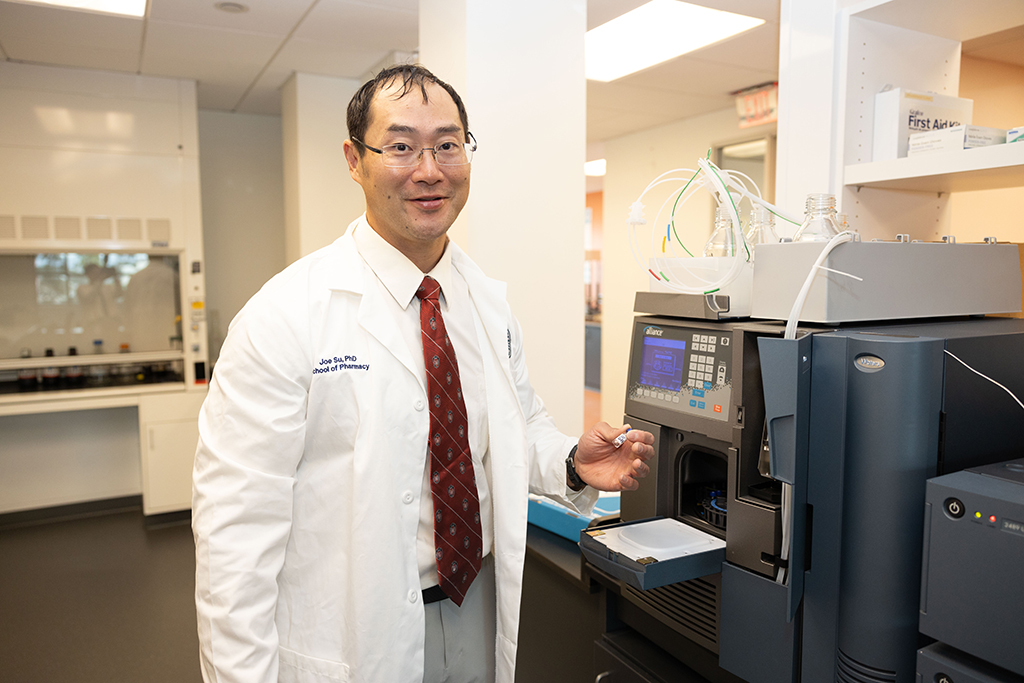
“Unfortunately, research and regulations are still reactive to what companies do in the supplement space,” says Su. “That’s not to say supplements don’t do good things — but it’s not to say they’re entirely evidence-based, either.”
Federal law governs the manufacture and distribution of dietary supplements, and the 1994 Dietary Supplement Health and Education Act gave the U.S. Food and Drug Administration more oversight of the supplement market, but Su says the industry is “still the wild, wild West,” which can make commercial viability a challenge.
“After eight years in the industry, I appreciated being part of this enterprise to get natural products out there at the commercial level and developing a quality system to make sure it really was what we said it was,” Su says. “My work there cemented my interest in natural products, especially in their untapped potential in alternative and complementary medicine.”
The power of natural products
Su returned to academia as a postdoctoral fellow in the research group of Deepa Rao (PhD ‘08) at Pacific University, exploring the formulation of natural products that could treat chronic inflammation, which can cause heart disease, cancer, diabetes, and more — even neurodegenerative diseases like Parkinson’s and Alzheimer’s.
“My postdoc is where I further developed tissue culture assays to augment our interest in natural products and how they work,” says Su. “That’s the backdrop for my research now.”
In his current role, as an associate professor at West Coast University in Los Angeles, Su studies how traditional medicine is formulated and how natural products can help people.
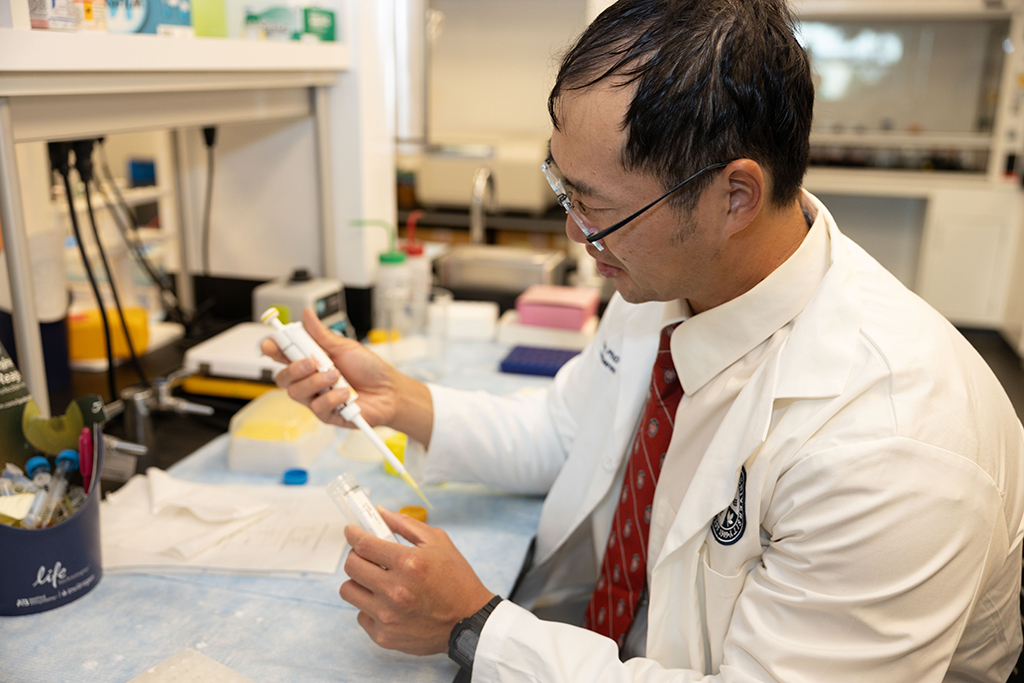
“We’ve looked at curcumin and resveratrol, inspired by my postdoctoral mentor Deepa Rao,” Su says. Curcumin, found in turmeric, and resveratrol, found in red grapes, are polyphenol compounds that have both shown anti-inflammatory properties.
“There are many success stories from which we can draw — isolated natural product actives that have been used in commercially successful products,” he says.
For example, paclitaxel, a chemotherapy drug for the treatment of breast and ovarian cancer, originally came from the bark of the yew tree, and white willow bark contains salicin, a chemical similar to aspirin.
“One of our most successful ingredients at SUSS was senna leaf, a natural laxative used in Ancient Egypt,” Su adds.
To highlight the power of even common natural products, Su points to grapefruit juice.
“Grapefruit juice is a well-known CYP3A4 inhibitor,” Su says. “Something so simple that we can buy anywhere can really do a number on anyone’s medication therapy, because it can make drug levels in the bloodstream too high as it slows down the metabolism of drugs that are substrates of the CYP3A4 enzyme.”
Setting the stage for success
Finding promising natural product compounds is one thing — isolating the active compounds shown to have a benefit is another, and it comes with steep challenges.
“We have to figure out which active compounds are most interesting to our research problem and how to standardize those chemical entities,” Su says. “The problem is multivariable, and it’s very hard to isolate the key ingredients, so we are focused on creating a catalog of what we find.”
Su and his students are creating a database, shared with other pharmaceutical scientists, to help them understand the mechanistic basis for natural products. The project was inspired by Burnette, with whom Su remains close.
“When I started this position, Dr. Burnette suggested I could contribute to the field just by helping folks understand what’s out there in terms of natural products,” Su says.
Su continues to focus on potential natural treatments for chronic inflammation. He and other researchers are looking at developing models to determine the possibility of examining biomarkers of inflammation and developing methods to assess inflammation.
“We’re interested in learning how humans transition from acute to chronic inflammation and are trying to develop diagnostic methods to assess it.”
—Joe Su
“Methodologies exist to track inflammation; we’re exploring which methodologies are most effective and how we can harness them in a high-throughput fashion, enabling people to identify and address inflammation early,” Su says. “We’re interested in diagnostics for our research, and we’re trying to figure out a method for diagnosing chronic inflammation before we can work with animals or humans.”
Su was recently approved for an intramural grant to work on student training and developing laboratory capabilities.
“The university is supportive,” he says. “They understand that for us to be the best teachers, we need to be innovators in the field, and that’s what we’re doing.”
